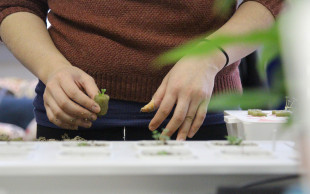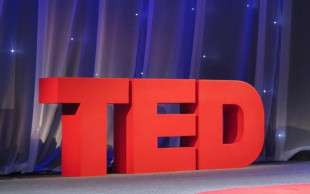Dean Yeong, a writer and entrepreneur at deanyeong.com shares with us how less freedom makes us happier.
One of the biggest dogmas runs like this:
If we want to maximize our happiness, the best way to achieve it is to maximize our freedom.
This is because freedom is in and of itself something valuable, worthwhile and essential to every single one of us. It sounds logical.
When we have freedom, we can use it to do things that maximize our happiness, we’re not taking orders from anyone, and no one needs to make decisions on our behalf. And the way to maximize freedom is to maximize choices. Most people want to make more money not because they want the cold hard cash, but because money actually brings more freedom into our life.
The more choices we have, the more freedom we have. The more freedom we have, the happier we are. No one ever questions this.
The top goals most people have today are certainly not job security nor stable relationships and a happy family. Most people want to have more freedom to choose how they spend their lives on in their own terms.
Indeed, we are bombarded by endless choices today:
-
There are more than one hundred degree programs to choose from in a wide range of colleges and university nowadays.
-
Our smartphones come with billions of downloadable applications.
-
When we walk into a grocery store, we have hundreds of different salad dressings to choose from.
All of them should make us happier since more choices should mean a happier existence. This belief is heavily and deeply embedded in our day to day life. But does more choices really lead to more happiness?
The Negative Side of More Freedom
I’m not suggesting that more choices and freedom are bad for us. There is no argument regarding how having more choices changes our world positively. We have all experienced the feeling of happiness that comes with increased freedom. So, let’s dive right into the negative impact that more choices creates in our lives.
1. TOO MANY CHOICES RESULT IN PROCRASTINATION & PARALYSIS
Just imagine what would happen if Apple actually launched 100 different models of the iPhone in a year. The sales will definitely drop, why? Because there are so many models to choose from, it would make it incredibly hard to finalize the decision and actually pick one.
The problem is not about the iPhone’s quality here, but the hassle customers need to go through to make the right choice. The more choices we have, the harder it is for us to choose. And most people will simply walk away due to the difficulty of making a decision.
The best example is seen in the majority of startups failures. Most startup failures aren’t caused by the lack of resources or market size but by a lack of focus on the part of the founding team. Smart people with great ideas and endless resources have more choices, which is not always a good thing. In this case, more choices produces procrastination and distraction which leads to a loss of focus on the most important matters at the moment.
2. THE OPPORTUNITY COST LEADS TO COMPARISON & DISSATISFACTION
Now, you have five oranges to choose from, one of them is the best orange you will ever have in this world. And this is the only chance for you to have that, if you miss it, you will never be able to get your hand on the world’s tastiest orange in your lifetime — ever. How does that make you feel?
More choices produce higher expectations for each and every option you have. We now know there is a world’s tastiest orange out of the five, but our brain will assume that all five are the tastiest. Even if we don’t think so, rationally and logically we assume we should pick the tastiest one, and we can’t accept anything less than that.
But even if you’re incredibly lucky to pick the best, you might think it’s not perfect, because you can never know what the other four oranges tasted like. The opportunity cost of the other oranges leads to dissatisfaction in us. This happens a lot in many areas of our life. Some people will think their spouse is not the best because there is always a better one, even if their spouse is actually the best one for them.
Eliminate Options and Choices
The solution to this problem is clear. We must first stop believing in the dogma we adhere to so much. More choices does lead to more happiness up to a certain point, but it’s never linear. After a certain point, it’s clear that given increasing choices, we become more miserable.
We should trim down the choices we have by prioritizing. Here are a few examples you can implement into your life now:
-
Focus only on one business idea or career goal. Put all your effort and time towards building that up first before you hop to the next one.
-
Remove other productivity apps on your smartphone, you only need one. In fact, you need a pocket-sized notebook and a pen.
-
Be content with what you have and who you are. Appreciate your marriage. Make an effort to see the good in your spouse and focus on giving not receiving.
-
Set only one fitness goal. You can’t build mass, cut fat, boost strength, improve endurance, and train for mobility all at the same time.
-
Niche down your targeted market when you’re crafting your marketing campaign so that you can provide what your customers really need and talk to them using their language.
If you have made a choice before – for your career, relationship, or finance, focus on the choice you’ve already made. Stop comparing your decisions with other alternatives. Instead, focus on what you decided before and make the best of it.
The Fish and The Aquarium
We are like a fish in an aquarium. The size of the aquarium dictates the freedom we have, and some of us see it as our constraints. To grow, we need a bigger aquarium. Unfortunately, what most people are trying to do is to break the aquarium. Without it, you’re a dead fish.
With the advancement of technology today, limitless choices have been opened to us. Thus, we want to believe that we could have limitless freedom so we can be happier. But limitless freedom is never a good thing. Yes, we do need some freedom to expand and grow, but without constraints, we will have no direction, no standard, no plan, and certainly no happiness.
Dean Yeong study people from various backgrounds. This includes top athletes, bestselling writers to successful entrepreneurs. He strives to uncover how they think, work, and live and shares his insights and lessons learned on his newsletter—Monday Digest.

















